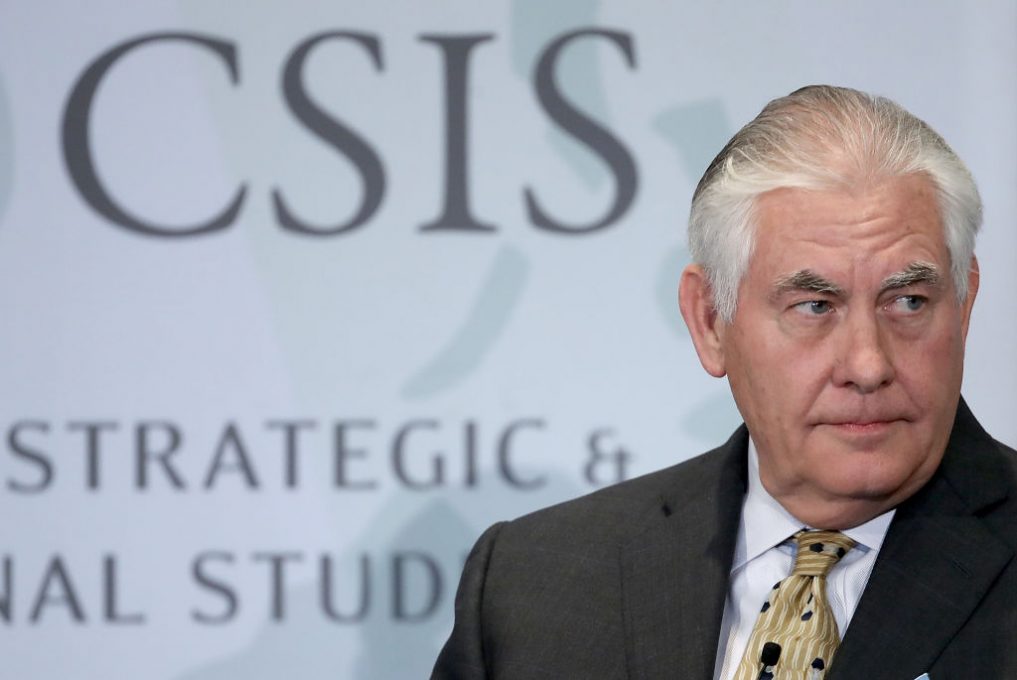
“Our defense ties are growing,” Secretary of State Rex Tillerson said in a speech at the Center for Strategic and International Studies (CSIS) in Washington.
He said the Trump administration is determined to “dramatically deepen” the U.S. partnership with India.
Tillerson’s warm embrace of India stands in contrast to his comments on China, which he said is directly challenging international rules and norms, like it’s construction of illegal islands in the South China Sea.
The remarks show how the Trump administration is using defense ties with India to offset China’s economic and military influence in the region, experts told The Cipher Brief.
“The message to China was that the administration has concerns about its actions as it rises, whether vis-à-vis the South China Sea or with the Belt and Road Initiative,” said Tanvi Madan, director of the Indian Project at the Brookings Institution.
“In contrast, Secretary Tillerson highlighted democratic India’s rise, its behavior in the region and the way India and the U.S. ‘share a vision of the future,” she said.
U.S. defense cooperation with India has strengthened since Indian Prime Minister Narendra Modi came to power in 2014, during the Obama administration, which later designated India a ‘Major Defense Partner.’ President Donald Trump has upheld this designation, which makes U.S. exports of defense technology much easier than in the past. Now, the Trump administration is making an even stronger push for defense cooperation.
Tillerson’s recommendations for stepping up defense relations with India, which he outlined Wednesday, include expanding maritime and counterterrorism cooperation.
“We are coordinating our counterterrorism efforts more than ever before,” said Tillerson, adding that the two countries will be convening a new dialogue on terrorist designations later this year.
On maritime matters, Tillerson said the administration hopes to conduct more maritime exercises with India in the coming years, building on the Malabar naval exercise in July, where the U.S., India, and Japan deployed their largest warships to the Indian Ocean.
But with all of Tillerson’s pushing for deeper defense relations, the sticking point could be India.
“It’s the Indians who have been putting the brakes on this,” said Sarah Watson, a U.S.-India fellow at CSIS, in reference to increased joint U.S.-India maritime exercises.
It’s also the Indians who have been preventing some U.S. defense exports.
“While the U.S. has offered to sell India unmanned UAVs – an offer which required the U.S. to overcome restrictions in the Missile Technology Control Regime – India hasn’t agreed to buy them, so no technology has been transferred yet,” noted Watson.
The White House approved the sale of 22 Guardian unmanned aerial vehicles (UAVs) to India in June, which India’s recent designation as a ‘Major Defense Partner’ makes possible.
India has yet to approve the sale. “India has its own strict and byzantine rules for acquisitions,” Watson said.
India has disappointed the U.S. on defense acquisitions in the past. “[President Barack] Obama personally made a push for India to buy the F-16 when India was planning a massive purchase of over 100 fighter jets,” said Watson. Instead, Dassault’s Rafale – a French company – won the competition.
But India has recently made significant reforms to its defense sector to open it up. Last year, for example, India removed requirements that foreign defense firms take joint ownership with Indian partners.
Tillerson on Wednesday reintroduced the call for India to buy Lockheed Martin’s F-16 fighter jet. Lockheed in June signed an agreement with Indian conglomerate Tata Group to move global production of the F-16s to India, and is now waiting to see if it wins the contract.
Modi, in a joint press statement with Trump at the White House in June, said, “President Trump and I have also spoken about strengthening bilateral defense technology and our trade and manufacturing partnership, which we believe will be mutually beneficial to us.”
Defense Secretary James Mattis was in India’s capital Delhi last month to discuss further security cooperation – specifically the Guardian drone sale.
Tillerson is traveling to Delhi for talks next week, where he is likely to continue his push for deeper defense ties. He will also visit Pakistan, India’s rival in the region.
Kailtin Lavinder is a reporter at The Cipher Brief. Follow her on Twitter @KaitLavinder.
